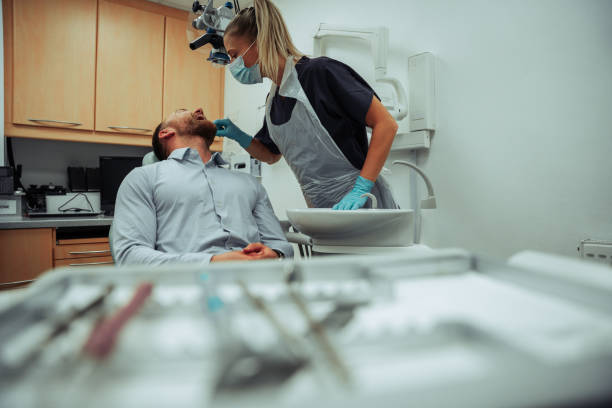Did you know that the global dental market size is projected to grow to $95.37 billion by 2032? This significant growth is due to the increasing demand for dental services.
As a result, pursuing a career in dentistry has become more popular than ever before. To truly excel in this field, it is crucial to have a strong foundation in both chemistry and biology.
In this article, we will explore nine reasons why chemistry and biology are crucial for a dental major. Read on to find out more!
1. Understanding the Structure and Function of Teeth
Teeth are complex structures that play a vital role in our health. They’re made up of different layers including enamel, dentin, and pulp.
Chemistry and biology help us understand the composition of these layers. This includes their functions and how they work together to maintain healthy teeth. This knowledge is essential for diagnosing and treating various dental conditions.
Moreover, a thorough understanding of the of teeth is crucial for performing procedures. This includes fillings, root canals, and extractions.
2. Understanding the Causes of Tooth Decay and Periodontal Disease
Tooth decay and periodontal disease are significant dental concerns. It affects a large percentage of the population. Both conditions can lead to serious oral health issues if left untreated.
Chemistry and biology provide you with an understanding of the causes of tooth decay and periodontal disease. This includes knowledge about bacteria and plaque formation. It also teaches the role of saliva in maintaining oral hygiene.
By understanding these factors, dentists can educate patients on proper oral hygiene practices. This can help prevent these dental conditions. It can also aid in the early detection and treatment of any issues.
3. Knowledge of Medications Used in Dentistry
As a dental professional, it is crucial to have an understanding of the medications used in dentistry. This includes local anesthetics, antibiotics, and pain relievers.
Chemistry helps us understand how these medications work on a molecular level. Biology provides insight into how they interact with the human body. It can also help identify potential drug interactions or allergies in patients.
This knowledge can help dentists administer medication to patients and monitor their effects. It also allows them to make informed decisions when prescribing medication. This is important for patient safety and effective treatment.
4. Understanding Dental Materials
Dental materials are an essential aspect of any dental procedure. They’re used in dental restorations, prosthetics, and orthodontic treatments. Having a strong foundation in chemistry helps you understand the properties of these materials.
With this knowledge, dentists can select the most suitable material for each patient’s needs. They can also ensure that the materials used are safe and effective. This is essential for the success and longevity of dental treatments.
Biology also plays a role in understanding dental materials. It helps dentists understand how these materials interact with the oral environment and tissues. This knowledge is crucial for preventing adverse reactions or complications.
5. Diagnosis and Treatment of Oral Diseases
Chemistry and biology are essential for diagnosing and treating various oral diseases. These include conditions such as oral cancer, gum disease, and infections.
Chemistry offers insight into the chemical changes in the body during diseases. Biology helps us understand how different diseases affect the body’s systems.
With this knowledge, dentists can diagnose these conditions and develop effective treatment plans. They can also track patients’ progress. This allows them to make necessary adjustments to their treatments.
6. Understanding the Effects of Diet and Nutrition on Oral Health
Diet and nutrition play a significant role in maintaining oral health. Certain foods can contribute to tooth decay and gum disease. Others can help prevent them.
Chemistry helps us understand how different foods interact with teeth and oral bacteria. This includes the role of carbohydrates, acids, and minerals in dental health. Biology also provides insight into how nutrition affects health and its impact on the oral cavity.
This can help dentists educate patients on dietary habits for optimal oral health. They can also recommend supplements if necessary.
7. Knowledge of Infection Control Protocols
As with any healthcare profession, infection control is crucial in dentistry. Dentists must have an understanding of microbiology and chemistry to prevent the spread of infections.
This includes knowledge about sterilization techniques, disinfectants, and personal protective equipment. This can help dentists create and follow proper protocols to ensure patient safety. It also allows them to identify and address potential infection risks in the dental office.
A strong foundation in these subjects can better understand emerging infectious diseases. They can stay updated on the latest protocols and guidelines. This is to protect both themselves and their patients.
8. Preparation for Advanced Specializations
Chemistry and biology are essential subjects to pursue advanced specializations in dentistry. These include endodontics, orthodontics, periodontics, and oral surgery.
A strong foundation in these subjects is crucial for success in these fields. It provides students with the knowledge to understand complex dental procedures and treatments. It also prepares them for further studies in these areas.
To help you with these subjects, check out the DAT Prep Book. This can provide you with guides and practice materials to excel in your studies. It can also help you prepare for the test required for admission to dental school.
9. Enhancement of Critical Thinking Skills
Studying chemistry and biology can enhance critical thinking skills in dental students. These subjects need a strong understanding of concepts and practical application.
Through laboratory experiments and case studies, students can develop problem-solving abilities. This is crucial for diagnosing and treating patients in the real world. It also helps them think critically when faced with challenging cases.
The Role of Chemistry and Biology for a Dental Major
Chemistry and biology are crucial for a dental major. These subjects provide the foundation for understanding oral health and performing dental procedures. They also prepare students for further studies in specialized fields of dentistry.
So if you’re considering pursuing a career in dentistry, make sure to focus on these two subjects. With dedication and hard work, you can become a successful dentist. It will help you contribute to the growing demand for dental services worldwide.
Do you love reading informative content like this? If you do, then you’re in the right place. Browse our blog to find more interesting content!




